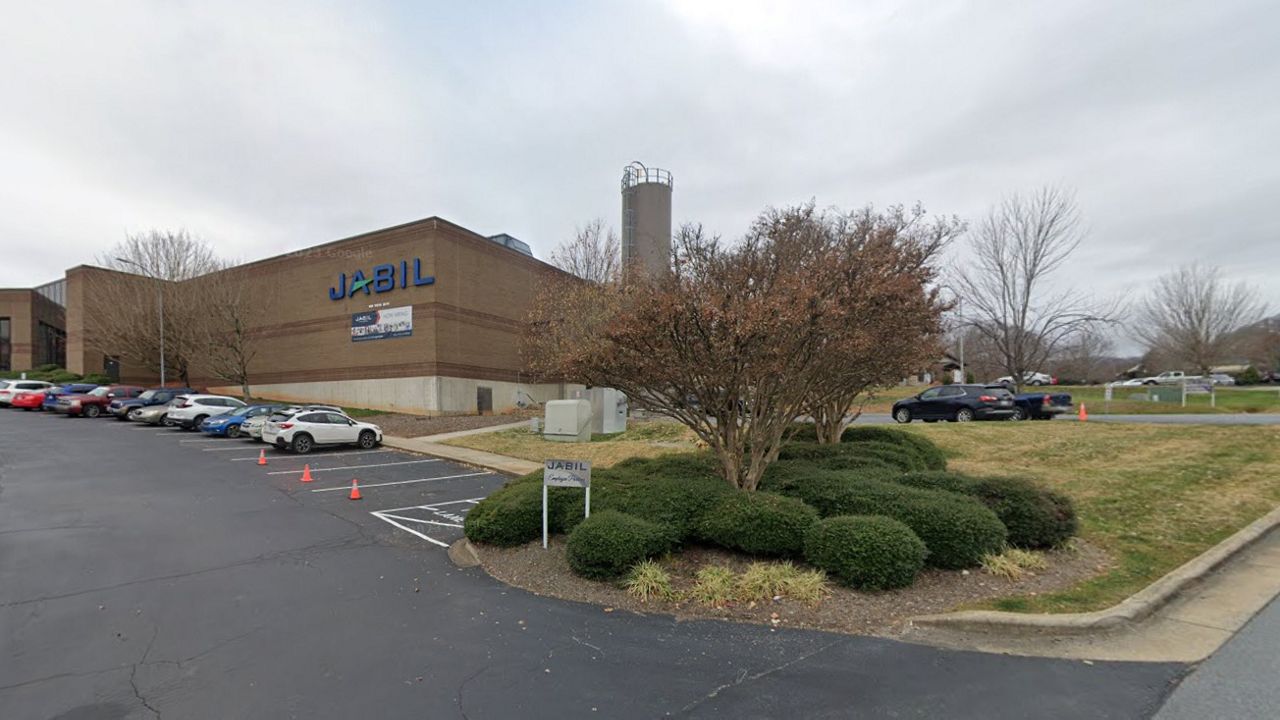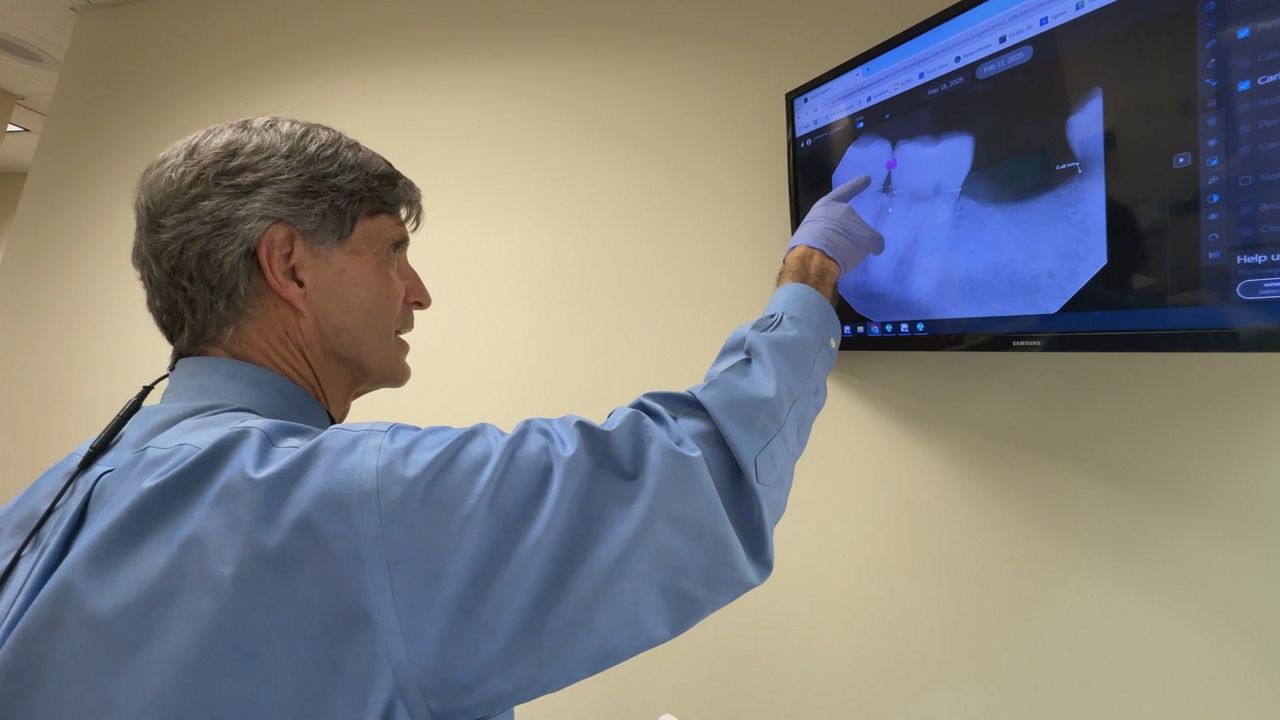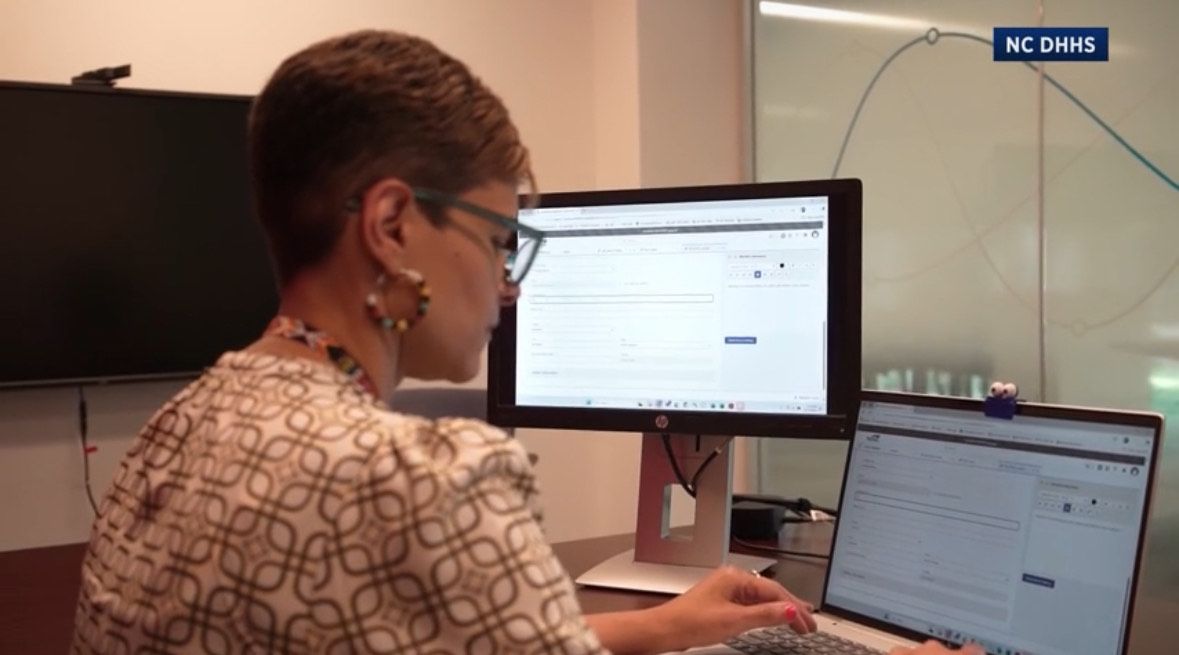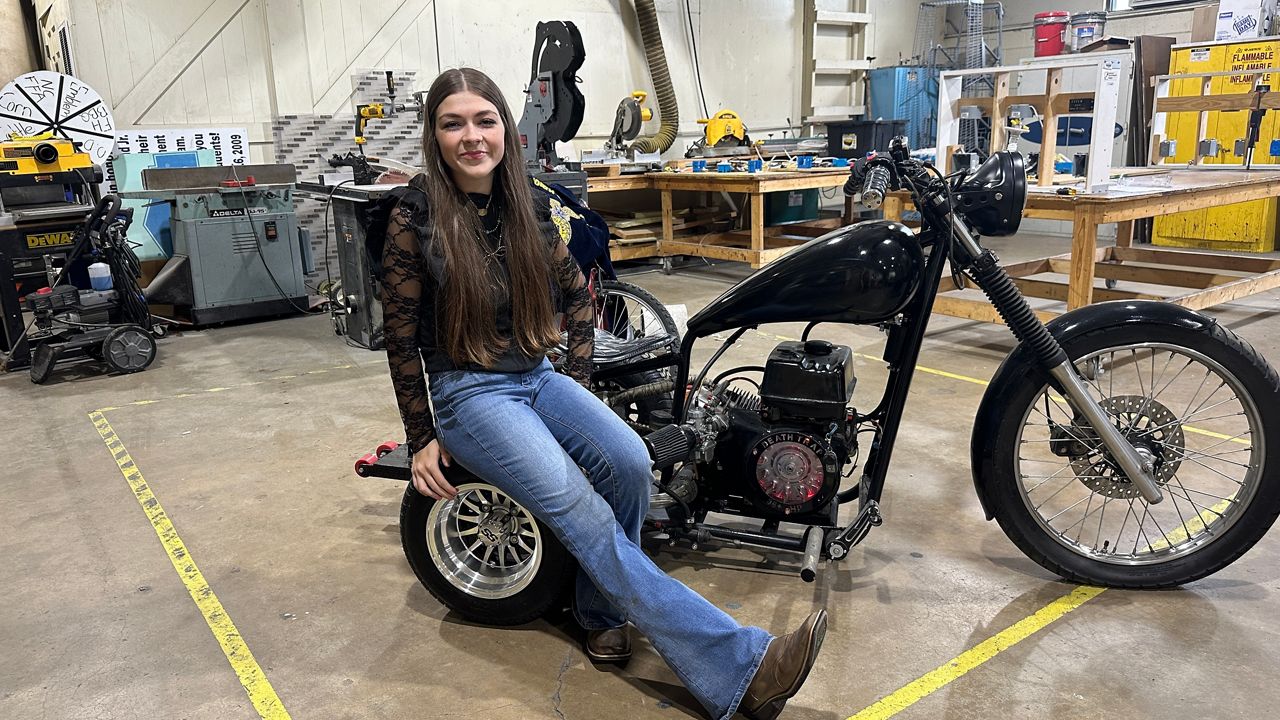RESEARCH TRIANGLE PARK, N.C. — This week researchers, policy makers, law enforcement and public health officials gathered to talk about recent research findings in community safety and policing.
What You Need To Know
- Researchers provided a virtual reality demonstration for training people
- The new software can be used as a training tool for crime scene investigators
- The researchers said using this software would save agencies time, money and resources
The policing symposium, organized by the Triangle Research Institute, focused on innovative ways to address issues in law enforcement.
Those discussions included health and wellness, community violence, drug overdoses, and recruiting and keeping officers active in the force. Demonstrations of a new virtual reality technology were also performed.
Jaclynn McKay, a former crime scene investigator, is part of a recent study on incorporating virtual reality into her job.
“I knew what VR was, but I had only done the roller coasters and played around with the gaming side of things,” McKay said. “It was really interesting to see how this tool could be adapted to real-world training environments.”
She said training crime scene investigators is often an expensive, time-consuming task that requires setting up very detailed practice crime scenes. However, using a VR program allows them to give every trainee the same experience and equal evaluation, in a fraction of the time.
“There’re a lot of benefits to hands-on experience that you’re just not going to get with VR, unfortunately, at least not in the current state of the technology,” McKay said. “But it’s very good for understanding greater workflow processes and getting the basics and making sure people are understanding the big tenets of how to process a crime scene appropriately.”
Edward “Chip” Hill said he has been working with new technology for over 40 years.
“Every time they pick up a piece of evidence or they use a tool, or they bag a piece of evidence, things like that,” Hill said. “There’s an event recorded so that we can go back and evaluate, you know, how well they have processed the scene.”
He said it’s amazing to see the many applicable uses VR has in law enforcement today.
“That’s what excites me,” Hill said. “That’s what gets me up. It makes me want to come to work every day. I mean, I’ve been doing computer graphics since the 80s…. What motivated me was the notion that eventually this tech was going to get to the point where the average person would be able to use it.”
McKay says while this technology is not currently used at agencies, she hopes it will be implemented soon.
“It’s just been a crazy experience just learning all about it,” McKay said. “And I’m really excited to see where it goes.”
The study on this VR technology was funded by the National Institute of Science Technology.
The headset they used for the demonstration cost $700, but Hill says their software could be used with a simple $200 headset.









